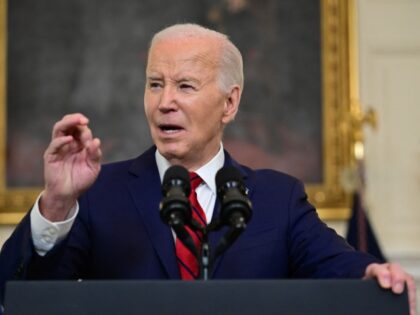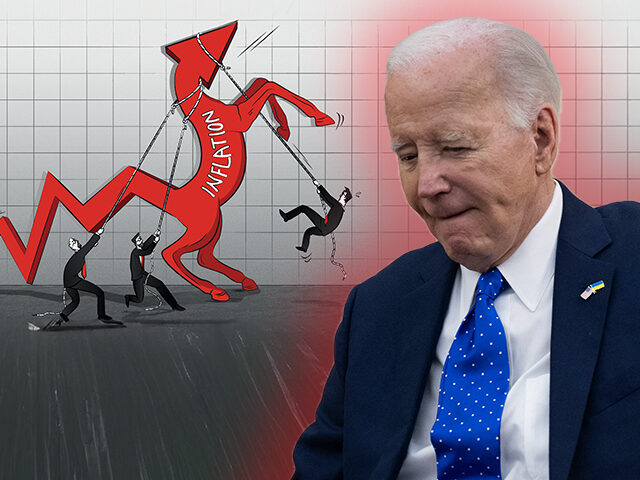from Palisades Gold Radio
Fed President: People Would Rather Have Recession Than High Inflation
by Breck Dumas
Yahoo! Finance

“The American people – and maybe people in Europe, equally – really hate high inflation,” Kashkari told the Financial Times podcast “The Economics Show with Soumaya Keynes” last week. “I mean, really, viscerally hate high inflation.”
Kashkari, who has led the Minneapolis Fed since 2016, said he has participated in several roundtable discussions with labor groups and workers around his region over the past couple years, and the comment that stuck with him the most was from a labor leader who represents low-income service workers.
Former Obama Adviser: Greed Isn’t Causing Inflation, Companies Didn’t Only Decide to Maximize Profit Under Biden
by Ian Hanchett
Breitbart.com
 On Monday’s broadcast of CNBC’s “Last Call,” Professor of the Practice of Economic Policy at Harvard University and the Harvard Kennedy School Jason Furman, who served as Chairman of the Council of Economic Advisers under President Barack Obama and on the Council of Economic Advisers and the National Economic Council under President Bill Clinton dismissed arguments that corporate greed is the cause of inflation and argued that companies always try to maximize their profits and didn’t just start deciding to do so in the past couple years, and the real culprit was demand spiking.
On Monday’s broadcast of CNBC’s “Last Call,” Professor of the Practice of Economic Policy at Harvard University and the Harvard Kennedy School Jason Furman, who served as Chairman of the Council of Economic Advisers under President Barack Obama and on the Council of Economic Advisers and the National Economic Council under President Bill Clinton dismissed arguments that corporate greed is the cause of inflation and argued that companies always try to maximize their profits and didn’t just start deciding to do so in the past couple years, and the real culprit was demand spiking.
Host Brian Sullivan asked, “Is corporate greed, in your mind, a part of this inflationary story?”
Furman answered, “I don’t think greed had very much to do with any of this. The thing to understand is that corporate greed is like gravity.
NY Fed Gauge of Inflation Persistence Shows Stickiness Following Surge
by John Carney
Breitbart.com
 Inflation persistence has eased only slightly after surging higher at the start of the year, according to a gauge from the Federal Reserve Bank of New York.
Inflation persistence has eased only slightly after surging higher at the start of the year, according to a gauge from the Federal Reserve Bank of New York.
A New York Fed model that aims to measure how much inflation is likely to keep going was revised higher for the first three months of the year, data from the bank showed Monday. The most recent reading shows only a slight decline in April, the most recent month measured.
The persistent barometer, known as the Multivariate Core Trend or MCT, jumped to 3.3 percent in January, upwardly revised from the earlier estimate of three percent. February’s figure was revised up to 3.1 percent from 2.7 percent and March’s to 2.9 percent from 2.6 percent.
Yellen Wants Price Inflation to Rise So the Feds Can Keep Spending
by Daniel Lacalle
Mises.org
 The long-term forecast for higher interest rates, according to Treasury Secretary Janet Yellen, makes it more difficult to control US borrowing needs, which emphasizes the significance of raising revenue in the forthcoming budget talks with Republican lawmakers. There is only one problem. She is wrong.
The long-term forecast for higher interest rates, according to Treasury Secretary Janet Yellen, makes it more difficult to control US borrowing needs, which emphasizes the significance of raising revenue in the forthcoming budget talks with Republican lawmakers. There is only one problem. She is wrong.
According to the Congressional Budget Office (CBO) baseline, which does not assume a single year of recession and already counts with record tax revenues, the 2025 primary deficit will reach $851 billion, while net interest outlays will rise to $951 billion. Furthermore, the minimum expected primary deficit from 2025 to 2034 will be a staggering $676 billion with $1.2 trillion of net interest outlays, while the average annual deficit will likely be above $700 billion. The accumulated figures are even more concerning. The CBO estimates that the aggregate primary deficit in the 2025–2034 period will reach a brutal $7.4 trillion, with accumulated interest expenses of $12.4 trillion. We must remember that the CBO baseline estimates no recession and constantly rising tax receipts above the record 2024 level.
Retailers Notice Shoppers Seeking Savings Amid Inflation
Inflation and high interest rates drive cautious spending, but a potential rebound is anticipated
by Freschia Gonzales
Wealth Professional

Canadian Tire Corp., Tim Hortons parent company Restaurant Brands International, Roots Corp., and Alimentation Couche-Tard Inc. have all observed that shoppers are increasingly seeking cost savings and reconsidering some purchases.
According to BNN Bloomberg, this trend was noted across the latest set of quarterly earnings calls, with many companies attributing it to a mix of inflation and higher interest and mortgage rates that strained budgets last year and have continued to slow consumer spending into this year.
However, there is consensus that the latter half of 2024 might see these concerns ease, especially if the Bank of Canada cuts its key lending rate over the summer.
RBA’s Hauser Says Inflation ‘Predominant Challenge,’ AFR Reports
by Swati Pandey
BNN Bloomberg
 (Bloomberg) — Australian central bank Deputy Governor Andrew Hauser said the “first and predominant challenge” for policymakers is to bring down inflation, according to an interview with the Australian Financial Review.
(Bloomberg) — Australian central bank Deputy Governor Andrew Hauser said the “first and predominant challenge” for policymakers is to bring down inflation, according to an interview with the Australian Financial Review.
Hauser, who joined the Reserve Bank earlier this year from the Bank of England, also cited the RBA’s full-employment mandate to justify Australia running a lower benchmark interest rate than global counterparts, in the interview published Monday. He said part of the RBA’s strategy is to “test” the level of full employment.
“We have a dual mandate,” he said. “If there is an opportunity to capture those gains on the employment side, I think we have an obligation to do it.” His comments reiterate those of Governor Michele Bullock and her predecessor Philip Lowe, who both stressed that they are trying to maintain employment gains while bringing down consumer prices.
Food Retailers Are Still Lying About Inflation and Profits
American consumers are paying more and more at both grocery stores and fast-food chains. These retailers are disingenuously blaming the price hikes on inflation while they put their massive profits toward stock buybacks and fat dividends.
by Veronica Riccobene
Jacobin
 As food costs have skyrocketed for Americans, some of the country’s biggest chains and grocery brands, including General Mills, PepsiCo, and Tyson, have blamed the price hikes on supply chain issues and economy-wide inflation. But behind the scenes, these companies have expanded profits and quietly authorized billions of dollars in lucrative stock buyback programs and dividend payouts to shareholders.
As food costs have skyrocketed for Americans, some of the country’s biggest chains and grocery brands, including General Mills, PepsiCo, and Tyson, have blamed the price hikes on supply chain issues and economy-wide inflation. But behind the scenes, these companies have expanded profits and quietly authorized billions of dollars in lucrative stock buyback programs and dividend payouts to shareholders.
Americans paid roughly 25 percent more on groceries and dining out this March than they paid in January 2020, outpacing the rate of general inflation. Over that same period, the companies behind the country’s ten largest grocery and restaurant brands have together returned or pledged to return more than $77 billion to shareholders.
Inflation Continued to Decline in April
by William J. Luther
The American Institute for Economic Research
 Inflation ticked down further in April, according to new data from the Bureau of Economic Analysis (BEA). The Personal Consumption Expenditures Price Index (PCEPI), which is the Federal Reserve’s preferred measure of inflation, grew at a continuously compounding annual rate of 3.1 percent in April, down from 4.1 percent in the prior month. It has grown at an average annual rate of 3.7 percent over the last three months.
Inflation ticked down further in April, according to new data from the Bureau of Economic Analysis (BEA). The Personal Consumption Expenditures Price Index (PCEPI), which is the Federal Reserve’s preferred measure of inflation, grew at a continuously compounding annual rate of 3.1 percent in April, down from 4.1 percent in the prior month. It has grown at an average annual rate of 3.7 percent over the last three months.
Inflation has typically exceeded the Fed’s average inflation target since January 2020, with thirty-eight of fifty-one (74.5 percent) months registering inflation above 2 percent. Prices today are 16.4 percent higher than they were in January 2020 and 9.0 percentage points higher than they would have been had they grown at an annualized rate of 2.0 percent over the period.
Warning Signs of Hyperinflation: Is the U.S. Following Venezuela’s Path?
by Gabriela Berrospi
Forbes
![]() Many of us in the Latino community in the United States have firsthand knowledge of the devastating effects of hyperinflation, having seen it wreak havoc in countries like Venezuela, Argentina, Cuba and even my homeland, Peru—with Venezuela’s situation among the most severe. In the wake of a global pandemic, the U.S. economy faces a critical challenge that could reshape its future: a significant and long-term rise in inflation.
Many of us in the Latino community in the United States have firsthand knowledge of the devastating effects of hyperinflation, having seen it wreak havoc in countries like Venezuela, Argentina, Cuba and even my homeland, Peru—with Venezuela’s situation among the most severe. In the wake of a global pandemic, the U.S. economy faces a critical challenge that could reshape its future: a significant and long-term rise in inflation.
Since 2021, the cumulative inflation rate has soared to over 18%, with the current annual rate at about 3.5% at the time of writing. This steady price climb is reminiscent of the early stages of Venezuela’s economic meltdown, which began subtly and later spiraled into a catastrophic crisis. To analyze this situation, it is important to note the difference between deflation and disinflation. Deflation means prices are generally going down, while disinflation means inflation is going up—but at a slower rate. We are currently in a disinflation phase, which means inflation is not improving.
Trump’s Plan to Supercharge Inflation
Voters believe Trump would handle the economy better than Biden. Economists think differently.
by Ronald Brownstein
The Atlantic
 Among prominent economists, no one was more explicit than former Treasury Secretary Larry Summers in warning that President Joe Biden and the Federal Reserve Board risked igniting inflation by overstimulating the economy in 2021. Soaring prices over the next few years proved Summers correct.
Among prominent economists, no one was more explicit than former Treasury Secretary Larry Summers in warning that President Joe Biden and the Federal Reserve Board risked igniting inflation by overstimulating the economy in 2021. Soaring prices over the next few years proved Summers correct.
Now Summers sees the risk of another price shock in the economic plans of former President Donald Trump. “There has never been a presidential platform so self-evidently inflationary as the one put forward by President Trump,” Summers told me in an interview this week. “I have little doubt that with the Trump program, we will see a substantial acceleration in inflation, unless somehow we get a major recession first.”
